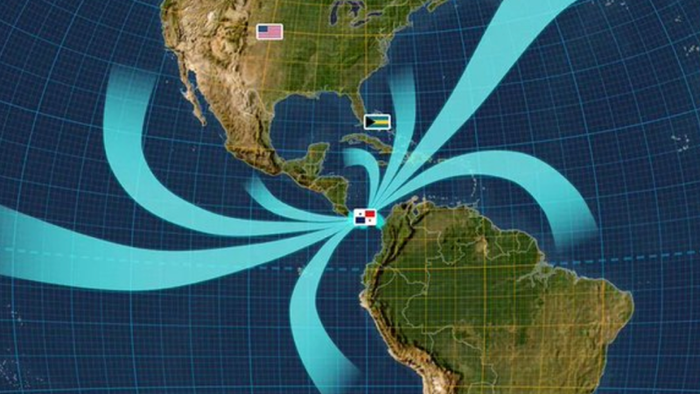President-elect Donald Trump appears prepared to reinvigorate the Monroe Doctrine, which historically asserted U.S. influence over the Western Hemisphere. His administration is expected to reestablish a firm stance against any foreign competition, particularly from China, in controlling critical maritime chokepoints and natural resources in the region. Trump took to social media, criticizing former President Jimmy Carter for the perceived mishandling of the Panama Canal, which he believes should have remained under U.S. control. His comments underscore a growing concern over China’s influence, particularly its control over two of the five ports adjacent to the canal, which Trump argues compromises U.S. economic and national security interests.
The Panama Canal’s significance to the U.S. cannot be overstated. Trump emphasized its vital role in American commerce, citing its importance in facilitating rapid navy deployment between the Atlantic and Pacific Oceans while also significantly reducing shipping times to U.S. ports. Given the maneuvering around the canal, Trump is likely to advocate for actions that counter China’s encroachment and assert U.S. dominance in the region. The canal’s strategic position makes it a focal point for geopolitical rivalry, particularly in a landscape increasingly dominated by competition for economic influence.
Trump’s comments also highlight issues such as high transit fees for U.S. ships, which he labeled “ridiculous.” This sentiment reflects a broader critique of U.S. foreign aid and the relationship with Panama, where Trump claims that American generosity has been taken advantage of. He is likely to focus on shifting these dynamics, signaling that the U.S. should not tolerate what he views as exploitation by a country that has benefitted significantly from U.S. support in the past. This rhetoric suggests a shift towards a more confrontational posture that may seek to reclaim control over essential maritime routes and resources.
Experts have noted that a return to the principles encapsulated in the Monroe Doctrine would represent a significant foreign policy shift. Emma Ashford, a senior fellow at the Stimson Center, expressed surprise at Trump’s insistence on reclaiming the Panama Canal, something she deemed unexpected but indicative of a serious commitment to reassert U.S. hegemony in the Western Hemisphere. Historical context informs the current situation, as the Monroe Doctrine was established in the 19th century to deter European interference in Latin America. Its revival during Trump’s presidency may signal an attempt to mitigate foreign influences that are perceived as direct threats to U.S. interests.
The broader implications of reviving the Monroe Doctrine could potentially reshape how the U.S. engages with not only Latin America but also global powers. The doctrine’s foundational principle was about maintaining a balance of power favoring the United States in its region, and this current iteration seeks to prevent adversaries from establishing a foothold that could threaten U.S. economic, political, and military interests. As such, Trump’s administration may strategize to reassert influence over critical resources and transportation channels, thereby ensuring that U.S. interests remain prioritized in discussions of regional governance.
In conclusion, Trump’s possible revival of the Monroe Doctrine and his focus on the Panama Canal raise significant questions about U.S. foreign policy and its handling of regional geopolitics. The concern over China’s presence in the canal area exemplifies broader anxieties regarding the shifting balance of power. By positioning the U.S. to reclaim control over important assets and facilities in Latin America, Trump’s administration could redefine relationships, paving the way for a more assertive and interventionist approach. The rhetoric surrounding the canal serves not only as a critique of past presidents but as a manifesto for a future where U.S. dominance in the Western Hemisphere is unequivocally restored.

